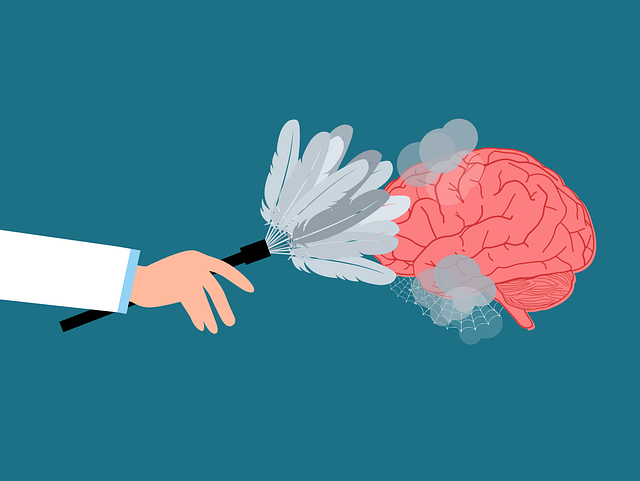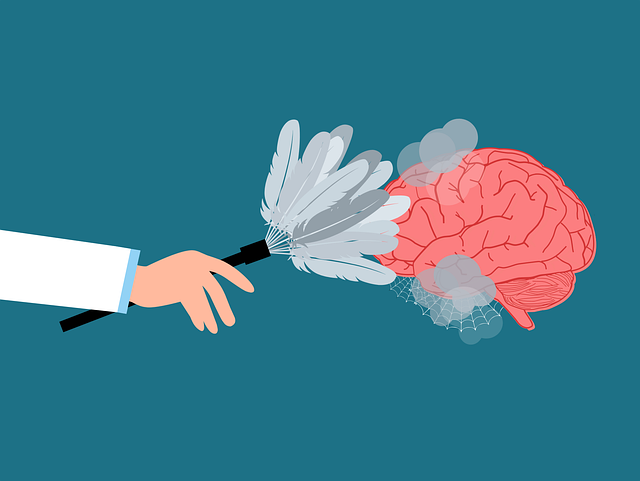Mental health practitioners in areas like Boulder, Colorado, face unique challenges managing self-disclosure, past traumas, and substance abuse during therapy sessions. They must be well-versed in techniques like Boulder Drug Abuse-Substance Abuse Therapy to navigate complex issues such as community-wide drug abuse. Effective strategies include recognizing subtle cues, utilizing resources, cultivating cultural competency, and implementing resilience-building techniques. Prioritizing self-care, open communication, and compassion cultivation can mitigate burnout and enhance therapeutic outcomes for patients with dual diagnoses. Continuous training and professional development are crucial to build resilience and stay updated on evidence-based practices.
In the dynamic field of mental health, professionals confront unique risks that demand meticulous attention. This article navigates the critical aspect of risk assessment, delving into the specific challenges faced by practitioners in the realm of Boulder Drug Abuse-Substance Abuse Therapy. We explore identifying hazards within patient interactions, implementing robust safety measures, and studying complex scenarios through case studies. Additionally, continuous training and professional development emerge as essential strategies for fostering resilience against these risks.
- Understanding the Unique Risks in Mental Health Practice
- Identifying Potential Hazards in Patient Interactions
- Implementing Risk Mitigation Strategies for Safety
- Case Studies: Navigating Complex Scenarios with Care
- Continuous Training and Professional Development for Resilience
Understanding the Unique Risks in Mental Health Practice

In the mental health profession, practitioners encounter a unique set of risks that differ from other healthcare fields. One of the primary challenges is managing the potential for self-disclosure during therapy sessions, where clients may share sensitive information about their personal struggles, including past traumas, substance abuse issues, and severe mental health disorders. This requires mental health professionals to be adept at handling confidential information while also maintaining professional boundaries. For instance, in Boulder, Colorado, where drug abuse is prevalent, therapists must be well-versed in substance abuse therapy techniques to support clients effectively.
Furthermore, the emotional demands of the job are immense. Mental wellness for healthcare providers is crucial as they often witness firsthand the struggles and suffering of their clients. Building resilience through self-care practices and empathy-building strategies is essential to mitigate burnout. By prioritizing their mental wellness, professionals can better serve their clients, ensuring a more positive and therapeutic environment, especially when addressing complex issues such as substance abuse in Boulder’s community.
Identifying Potential Hazards in Patient Interactions

Mental health professionals encounter a unique set of challenges when interacting with patients, particularly those dealing with substance abuse issues like drug addiction in Boulder. Identifying potential hazards is an essential step in risk assessment. These dangers can manifest as verbal or non-verbal cues from patients, revealing underlying struggles with mental health, trauma, or addiction. For instance, a patient’s guarded behavior, evasive answers, or sudden changes in mood might indicate hidden risks, requiring the professional to adapt their approach accordingly.
In the context of Boulder Drug Abuse-Substance Abuse Therapy, professionals must be adept at recognizing subtle signs of distress or potential self-harm. This includes being attuned to language and storytelling techniques employed by patients during therapy sessions. The Mental Wellness Podcast Series Production can offer valuable insights into these dynamics, while Resilience Building strategies are crucial for both the patient and provider. Moreover, training in healthcare provider cultural competency is vital, as it enables professionals to navigate diverse patient backgrounds and needs effectively.
Implementing Risk Mitigation Strategies for Safety

Mental health professionals are constantly navigating complex situations, making it imperative to implement robust risk mitigation strategies for safety. These strategies, inspired by best practices in Boulder Drug Abuse-Substance Abuse Therapy, go beyond traditional crisis management. They emphasize fostering a culture of positive thinking and self-care practices among practitioners, ensuring they can maintain resilience even in challenging cases. By prioritizing their own well-being, professionals can better support their clients, enhancing the overall therapeutic process.
Risk mitigation isn’t just about preventing crises; it’s about empowering professionals to handle situations with confidence and composure. This includes integrating resilience-building techniques into daily routines, encouraging open communication among colleagues, and establishing clear protocols for escalating concerns. Such proactive measures not only safeguard professionals but also create a safer, more supportive environment for clients seeking help, particularly those dealing with substance abuse issues.
Case Studies: Navigating Complex Scenarios with Care

In navigating complex scenarios, mental health professionals often encounter challenging cases that demand nuanced approaches. For instance, consider a patient presenting with both severe depression and substance abuse, such as those requiring Boulder Drug Abuse-Substance Abuse Therapy. These dual diagnoses complicate treatment, necessitating a careful balance between addressing each issue individually while recognizing their interconnectedness. Effective risk assessment in such cases involves understanding the unique interplay of mental health challenges and addiction, which can be facilitated by Compassion Cultivation Practices—mindfulness and empathy-focused training proven to enhance healthcare providers’ resilience against burnout.
By employing robust risk assessment tools tailored for complex presentations, professionals can identify potential triggers, warning signs, and vulnerabilities specific to each patient’s journey. This proactive approach not only enhances safety measures but also enables more personalized treatment planning. Moreover, integrating Burnout Prevention Strategies for Healthcare Providers into daily practice ensures professionals remain equipped with the resilience needed to navigate these intricate scenarios with care, ultimately fostering better outcomes for patients facing dual disorders like depression and substance abuse.
Continuous Training and Professional Development for Resilience

Mental health professionals face unique challenges that can contribute to burnout and stress, especially when dealing with complex cases of substance abuse, anxiety, or other demanding issues. To mitigate these risks, continuous training and professional development are essential tools for fostering resilience. By participating in ongoing educational programs, therapists can stay updated on the latest research, evidence-based practices, and innovative treatment methods, enhancing their skills and confidence.
In today’s rapidly evolving field, professionals like those in Boulder Drug Abuse-Substance Abuse Therapy must prioritize self-care and emotional well-being alongside their client’s recovery journeys. Incorporating compassion cultivation practices and stress management techniques can help prevent burnout. These strategies not only promote anxiety relief but also strengthen the therapist-client relationship, creating a more supportive and healing environment.
Mental health professionals, like those specializing in Boulder drug abuse-substance abuse therapy, face unique challenges that require a comprehensive risk assessment approach. By understanding and identifying potential hazards, such as complex patient interactions and emotional stressors, professionals can implement effective strategies to mitigate risks and ensure their well-being. Continuous training and professional development further enhance resilience, enabling practitioners to navigate challenging scenarios with care and expertise. Adopting these measures is vital for maintaining a healthy work environment and delivering optimal patient care.














